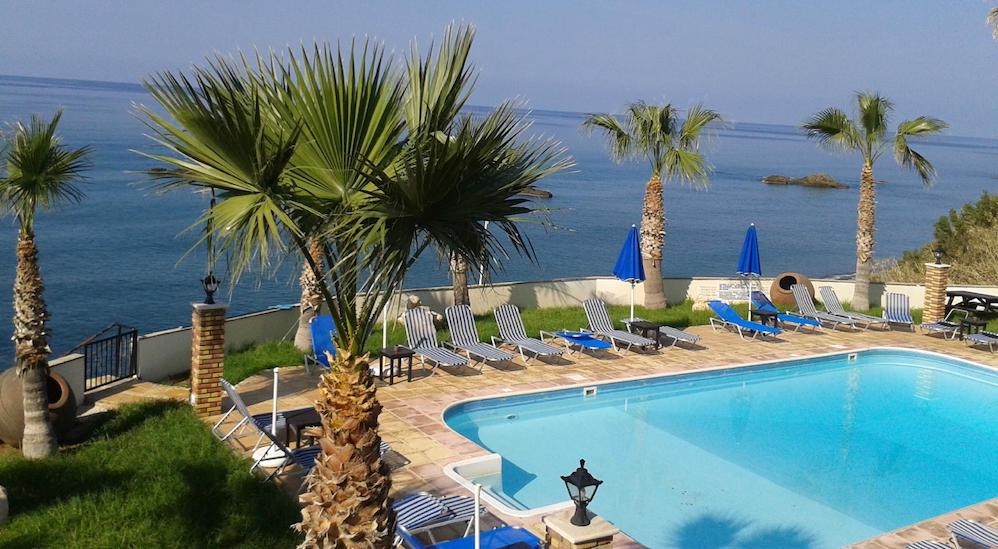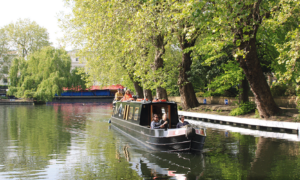My sister Marjorie was the original digital nomad, working from wherever as she traveled the globe. If you think the pandemic has slowed her down, then you don’t know Maggie.
She and her husband Marty spent the summer in Serbia, then went to Corfu. She just left Greece for the Republic of Cyprus, where she’s found the ultimate port in the storm, especially compared to the United States, where she was this summer.
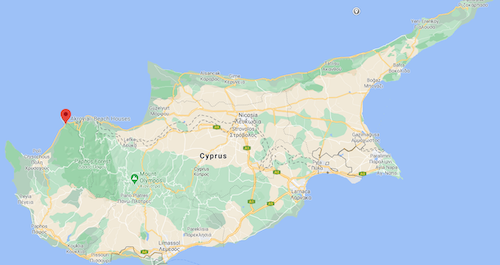
So I called her up from Dispatches HQ in cold, rainy Netherlands to ask whether this Greek-oriented island between Europe and the Middle East was working out as a pandemic expat refuge.
“It’s 70 degrees here. Blue skies. Lows in the mid-50s It’s beautiful.”
Ouch.
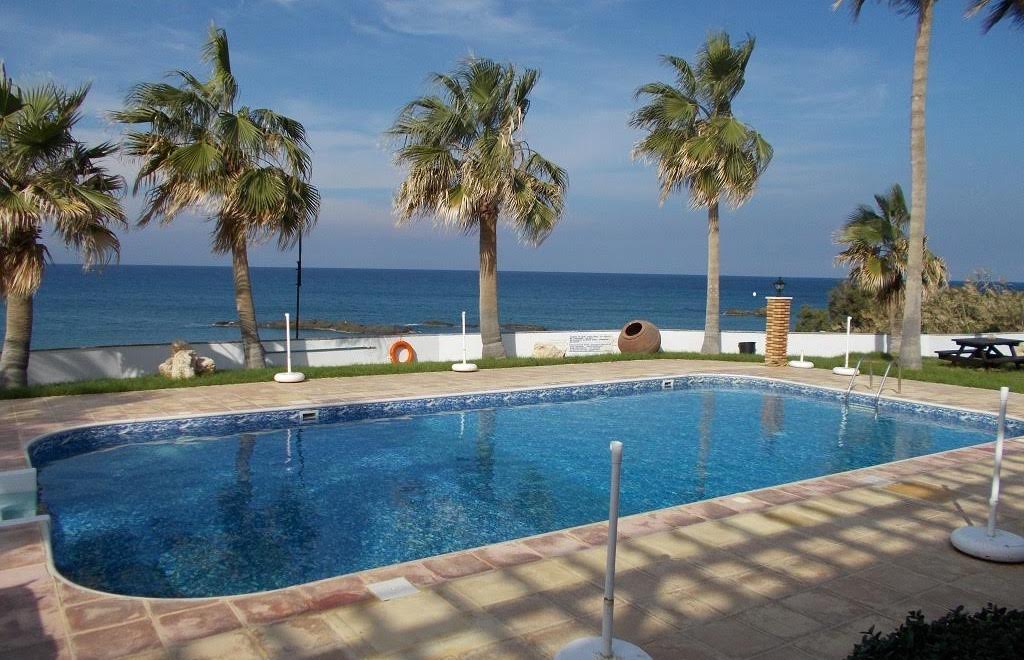
Their studio apartment in a well tended 14-unit Sun Camero complex in the village of Pomos has all the modcons and a fabulous view of the Med. Outside there are palm trees, bougainvillea and banana trees around the pool. The owner is so pleased to have them – to have anyone – that she brings them fresh food, freshly baked bread, eggs, veggies and even avocados every day.
“And she gave me a big container of olives,” Maggie said.
While she rates Cyprus a great pandemic destination, Maggie made the trip for reasons beyond sitting out the pandemic in the sun. Martin has a EU passport via the fact he was born in Latvia, while Marjorie still only has a U.S. passport. Which means they have to leave their main base of operations, Corfu, to spend 90 days outside Schengen. This time it was Cyprus, which is a EU country, but doesn’t become part of the Schengen Area until 2021.
Leaving upscale Corfu for downscale Cyprus has been a bit of a shock, said Marge, who describes Cyprus as “utilitarian and practical, with little concern for beauty” compared to Greece, Spain, Portugal and Italy. Lots of concrete buildings. Lots of bare hillsides.

Still, Sun Camero is an oasis and the village of Pomos, with its crowing roosters and free-range donkeys, has its charms, including a nice big natural history museum, a butcher, two supermarkets, lots of outdoor grilling restaurants (still open) and a beautiful harbor. There are sidewalks along the road, “which you appreciate when you don’t have a car,” Maggie said.
The method she used to select Pomos can only be described as “reverse-engineering” from local to global.
“I went backward. I looked up ‘seaside villages, non-tourist'” to try to find a local website … about local areas. You want to do local, not Booking.com. Once I found some villages, I went to Booking to see what’s nearby because they have really good maps.”
All things considered, Marjorie added, where they are is exactly where they want to be – a low-virus environment with the freedom to go shopping, unlike Atlanta, where they were living during the first wave of the pandemic. “In the U.S., it was not much fun. In fact, it was awful.
“To be in a pandemic in this setting is great.”
So, how did they do it? Stay tuned for Marge’s detailed travel rules here.
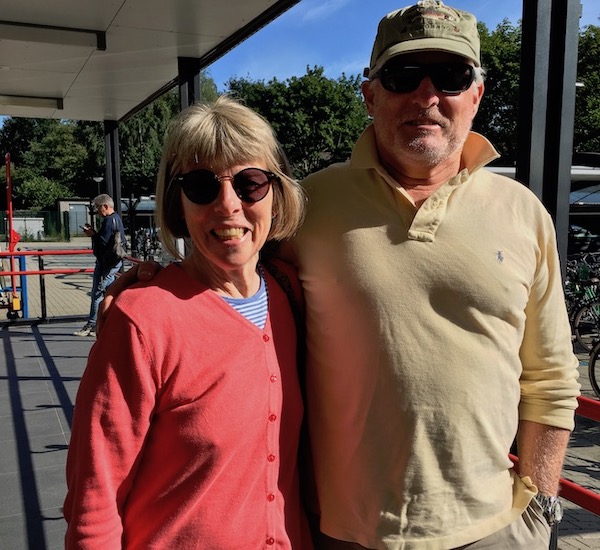
About the author:
Terry Boyd is co-founder of Dispatches Media, based in Eindhoven, Netherlands. Boyd has been a military reporter, business reporter and an entrepreneur, founding Insider Louisville, a pure-play digital news platform, in 2010.
Boyd & Family are long-time expats and have lived in Turkey, Germany and the Netherlands.
You can read more about Marjorie’s travels here.
Co-CEO of Dispatches Europe. A former military reporter, I'm a serial expat who has lived in France, Turkey, Germany and the Netherlands.


